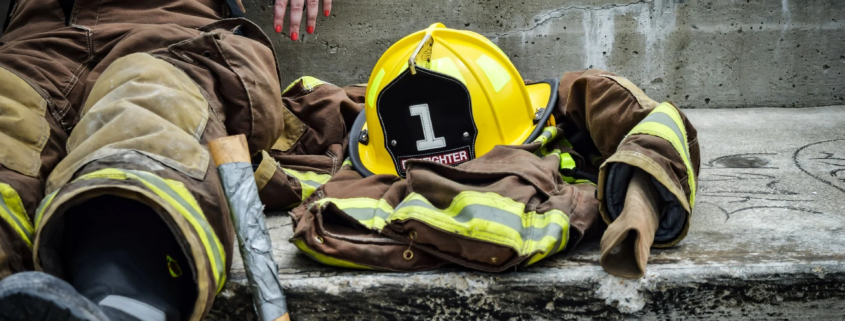What Exactly is Vicarious Trauma in Emergency Responders?
by Kellie Medendorp, LCSW, CFRC
At the age of 16, I became a volunteer firefighter, and when I graduated high school I made the decision to pursue social work and therapy as a career. The easiest way I can explain vicarious trauma is through one of my own personal experiences with it. Late one evening a few
summers ago, my fire company was dispatched to an incident that was not typical. I can’t remember how it was categorized when it came through on my phone, but I remember thinking something was off about it. When we arrived on scene, we were informed that there was a person on the roof of one row home holding a canister of gasoline who had tried to set his house on fire. Unfortunately, this person chose to dump gasoline across the roofs of a couple other homes and proceeded to light it on fire. This was the part of the incident of which I have
the most vivid memories. Other fire companies had their ladder trucks and engines in front of the homes working to put out the fire. My company was on standby, and I quickly realized I was standing next to one of the homeowners of one of the houses on fire. As I listened to them talk about their fear and sadness watching their home burn, I could feel the empathetic part of my brain turning on. I started imagining how they felt and how I would feel if I was quietly sitting at home and then suddenly my night turned into this. After a few brief moments of empathy, I mentally put that part of my brain in check because my job that night wasn’t over yet. It wouldn’t be over until several hours later after the fire was extinguished and the SWAT team went up to detain the individual with additional support from my company in removing him from the roof.
I did a quick Google search for this article for additional ideas to explain vicarious trauma, and there’s a quote from one of the videos that stuck out to me- “it impacts a change in how you see the world.” I was already a little biased since both my father and brother were firefighters and EMTs, and sometimes they would come home from calls and tell (censored) stories. However, I never heard the more troubling details of these calls and the harm people are capable of causing. The night of the above-mentioned call is one of those defining moments that changed how I see the world. I realized how quickly someone’s life could change without any hint or knowledge that something that big was coming. It’s not the only one and I know as long as I continue to be a volunteer firefighter, plenty more will follow.
Additionally, my professional role as a clinical social worker has added other experiences to my bucket of vicarious trauma. I’ve worked with children and adults that have experienced significant traumas that I now carry with me. However, as a social worker I have been trained in
school and through professional supervision over the years to look out for symptoms of vicarious trauma and burn out. Through reflection and therapy (yes, therapists need therapy too!) I now have the awareness of when my symptoms of vicarious trauma are showing up. For
me these are:
● Being more sarcastic than usual
● Spending less time with loved ones
● Viewing the world with pessimism most of the time
● Ignoring my spiritual beliefs and practices
● Commiserating with others that are as negative as my thoughts have been
● Feeling more tired than usual and irritable
● Lack of patience
● Less motivation to engage in activities to care for my mind, body, and spirit
When these symptoms start popping up, I usually notice fairly quickly and begin to reflect on what changes are needed to basically “reset” myself.
I am most likely in the minority among the Emergency Responder population with my background in social work, so I’ve already been proactively trained on the risks, signs, and treatment available for vicarious trauma and burnout. Most Emergency Responders receive very
little information or training on caring for their emotional well-being. While I was in fire school, there was only one training slide with one line about mental health throughout the entire, months-long program.
What are your signs? Would you benefit from talking to someone to figure them out?


